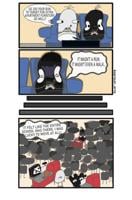I think most people have heard of DEI — diversity, equity and inclusion — by now; we’ve all heard it referenced in syllabi and in various presentations. But I’m not sure how many of us know how exactly to incorporate it. Sure, there are definitions for each of the words, diversity, equity and inclusion. But how do you know if you’re actually doing it?
Amid the focus on and backlash against DEI practices in recent years, it seems college campuses have been caught in the middle. While DEI remains an important issue to many college students, it is still important for us to be mindful about how we are proceeding with it.
Sheri Schwab, the vice provost for the Office for Institutional Equity and Diversity, said when thinking about DEI on campus, there are levels to consider.
“There is the inner-individual or interpersonal cultural competency,” Schwab said. “Like, okay, I'm a white, heterosexual female. I hold those identities, so I have less knowledge about the lived experiences of other people.”
But DEI isn’t just about understanding your own limits on perspective; it’s about being more considerate of the space you inhabit as well. It’s one thing to know how you exist in relation to other communities, especially those that have been historically marginalized, but it’s another to be actively aware of how those differences may be perpetuated.
“So that kind of construct, so I need to understand my own place, my own identities and then other places where I am, … but it’s another thing for me to work at the other two levels — the structural or the organizational level — so understanding what policies may be kind of keeping my pay being different, equal,” Schwab said.
I know, as a white man, I don’t face a lot of discrimination or prejudice in my day-to-day life, and I probably take for granted the level of privilege I enjoy. I know on a predominantly white campus I look like most of my peers, and I may not be privy to all of what needs to be changed on campus.
However, an understanding of definitions and models is only great on paper. While it’s great to have strong definitions for diversity, equity and inclusion, it means little until it’s put into practice. These definitions working together hinge on understanding perspective.
Let’s level here: You don’t know what you don’t know. It sounds obvious, but when we have discussions of diversity and inclusion, it’s important to account for what’s not being said just as much as what is. In other instances this can be recognizing there is a lack of cultural knowledge, either from yourself or the collective.
As a bit of discretion, this is not to say that perspectives from different people in the same group will be one-to-one. This is also not to say diversity should only be a means of using people specifically for their cultural knowledge. Treat people as whole and individual people.
This all may sound like a lot to manage, and it is a lot at first. But there are resources on and off campus. Schwab said the libraries offer information sessions on DEI specifically for those who are trying to learn more.
“People often ask this question like, ‘How can I access information? How do I know if it's credible or not?’ So we created this DIY DEI,” Schwab said. “A lot of folks worry about going into classes or lectures where DEI is the topic because they're afraid to make a mistake. But we want to be in a learning frame of mind.”
This is how DEI becomes actionable. By expanding your own perspective and taking things deeper than face value. Schwab said asking questions that challenge your own norms can help to build empathy.
“We want them to go back and actively think about ‘What are the things I need to do differently,’” Schwab said. “And it can be even at the interpersonal level. Even when a world event happens that affects an identity that I don't hold, but I can still be sensitive about that and understand that my colleagues or friends or students may be impacted by that. I may be impacted by that even if I don't hold that identity.”
At the end of the day, DEI is ultimately a means of developing perspective-taking on a wide scale. It’s a means of understanding power abuses happen, and by admitting a lack of knowledge or understanding we can begin to minimize it. The only way we get better at that is by discussing what exactly that means, by challenging ourselves and others, and by encouraging each other to do the same.




(0) comments
Welcome to the discussion.
Log In
Keep it Clean. Please avoid obscene, vulgar, lewd, racist or sexually-oriented language.
PLEASE TURN OFF YOUR CAPS LOCK.
Don't Threaten. Threats of harming another person will not be tolerated.
Be Truthful. Don't knowingly lie about anyone or anything.
Be Nice. No racism, sexism or any sort of -ism that is degrading to another person.
Be Proactive. Use the 'Report' link on each comment to let us know of abusive posts.
Share with Us. We'd love to hear eyewitness accounts, the history behind an article.